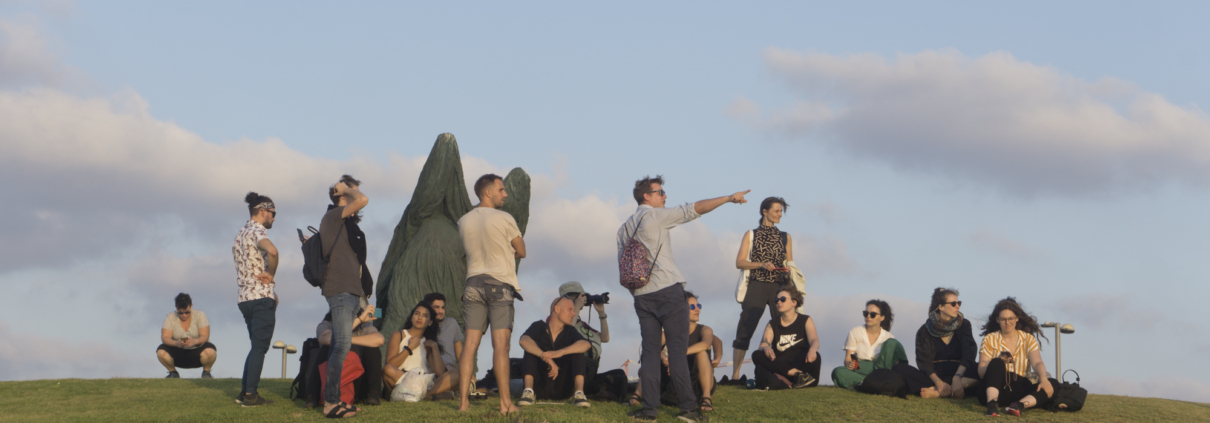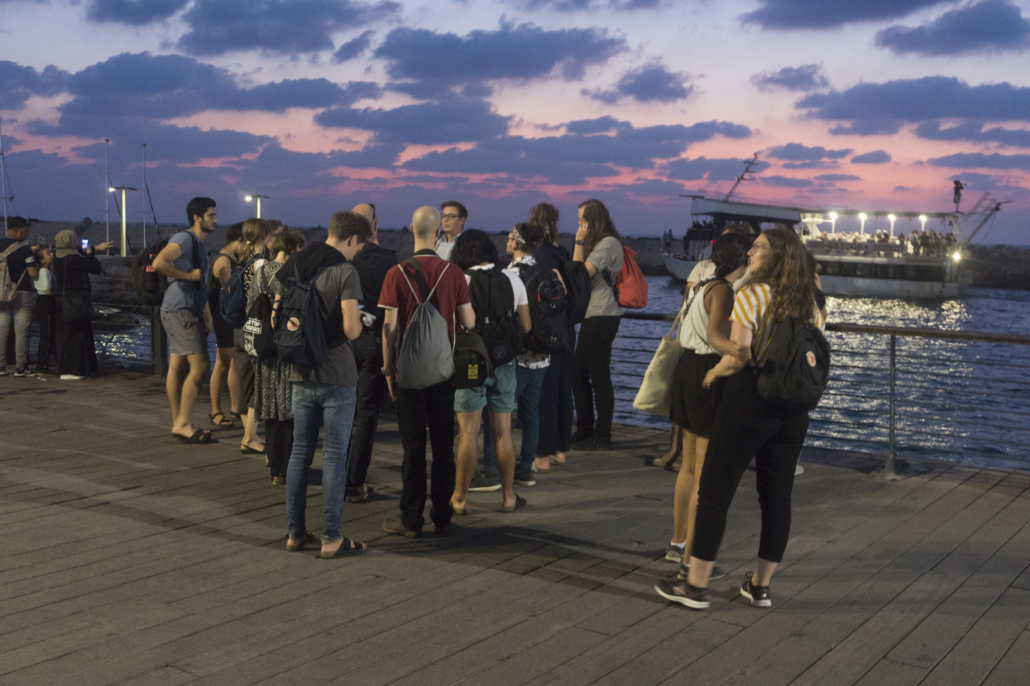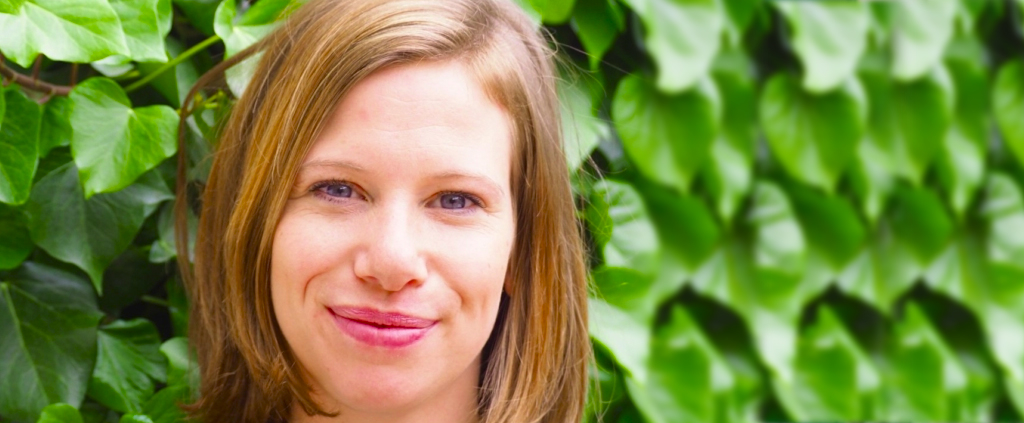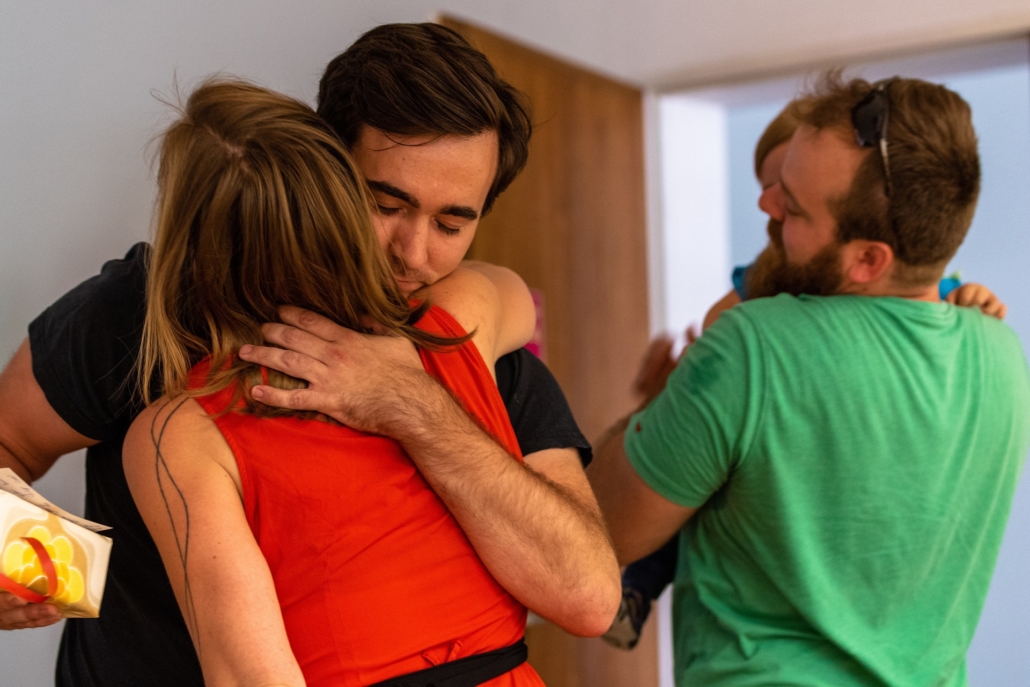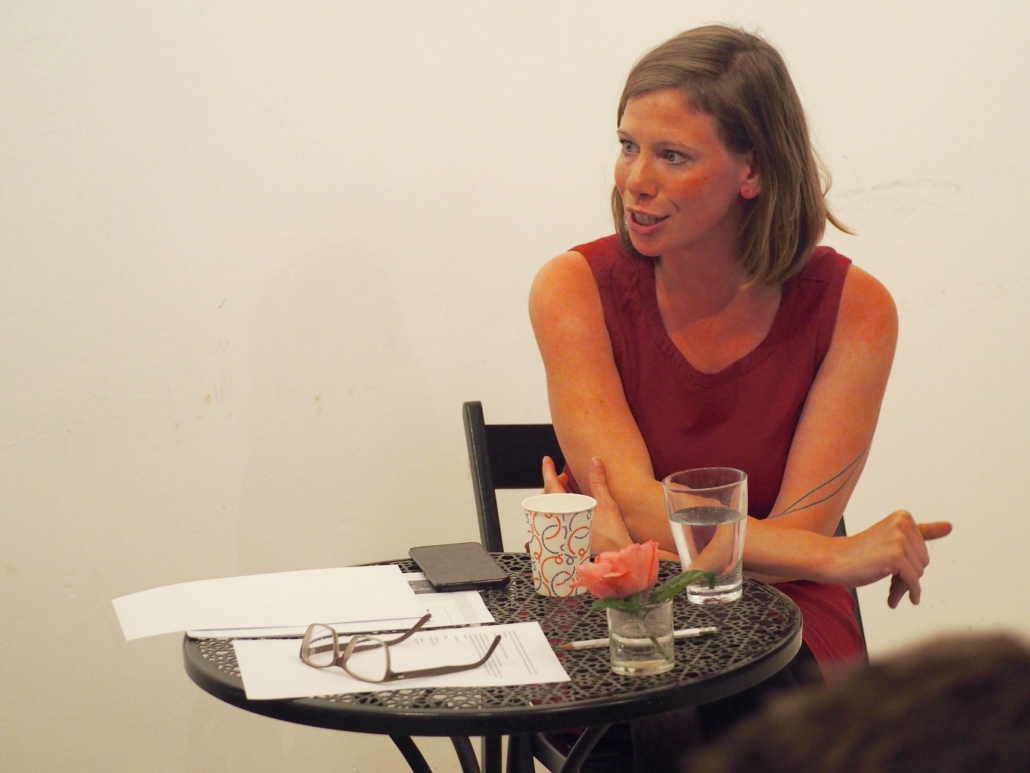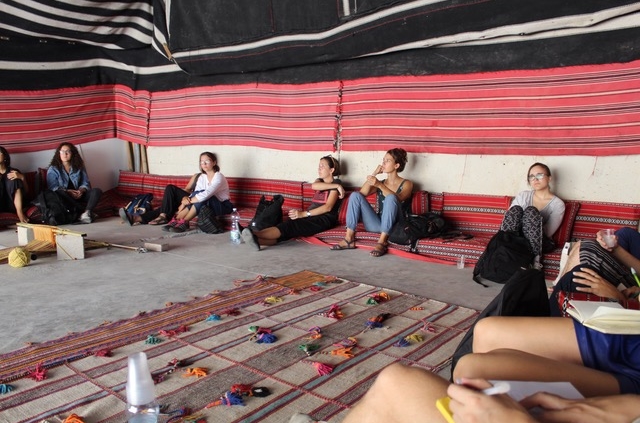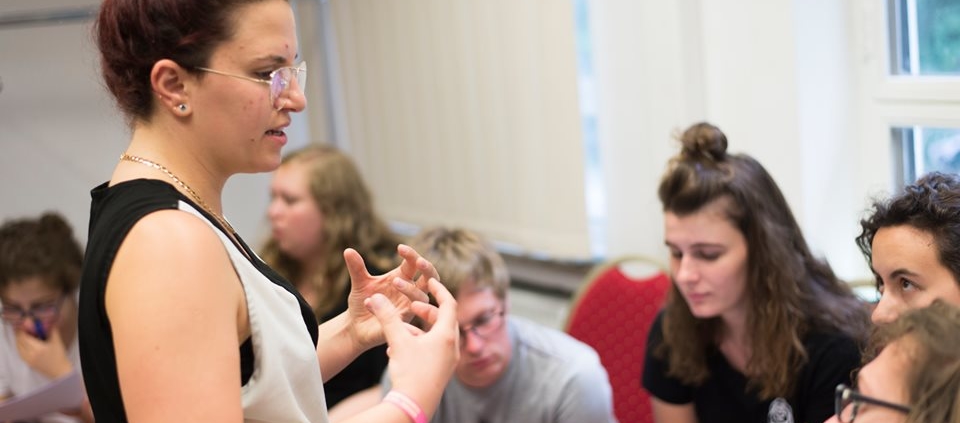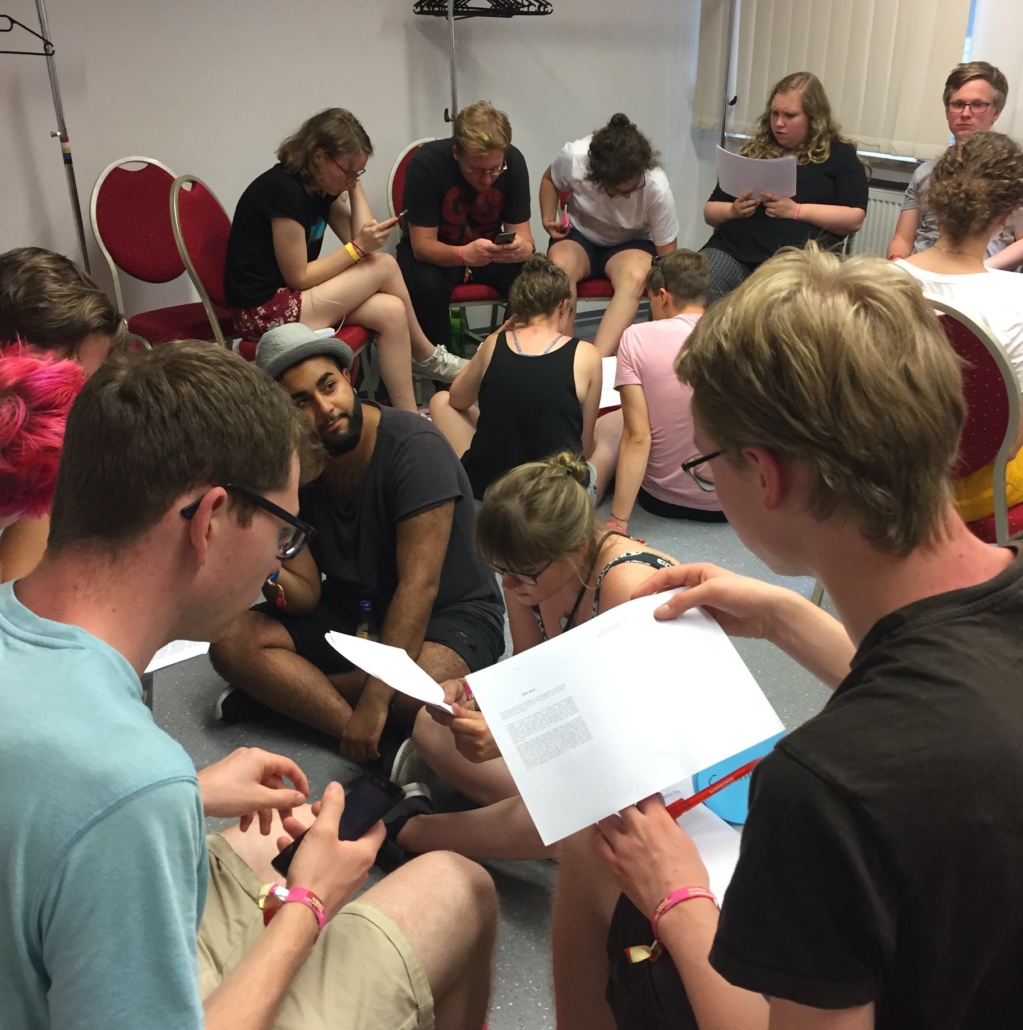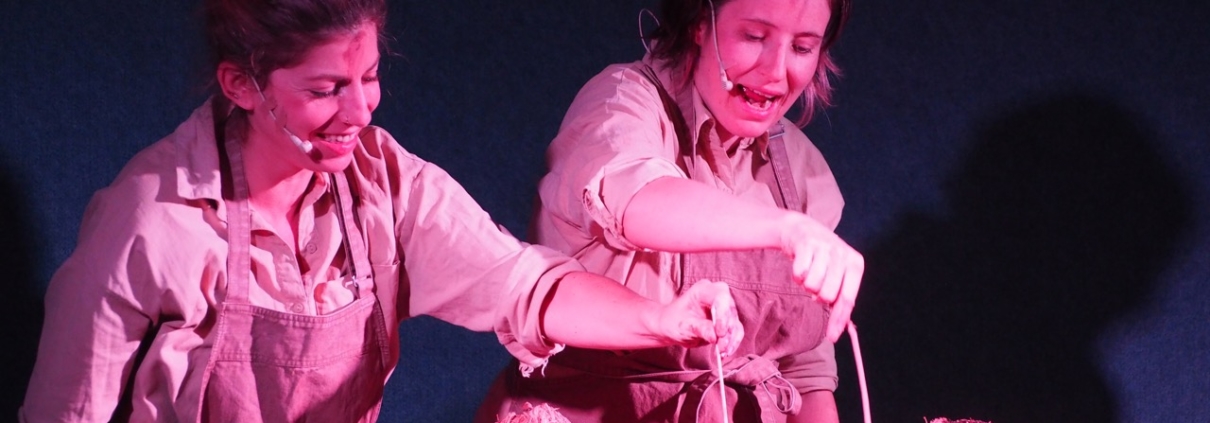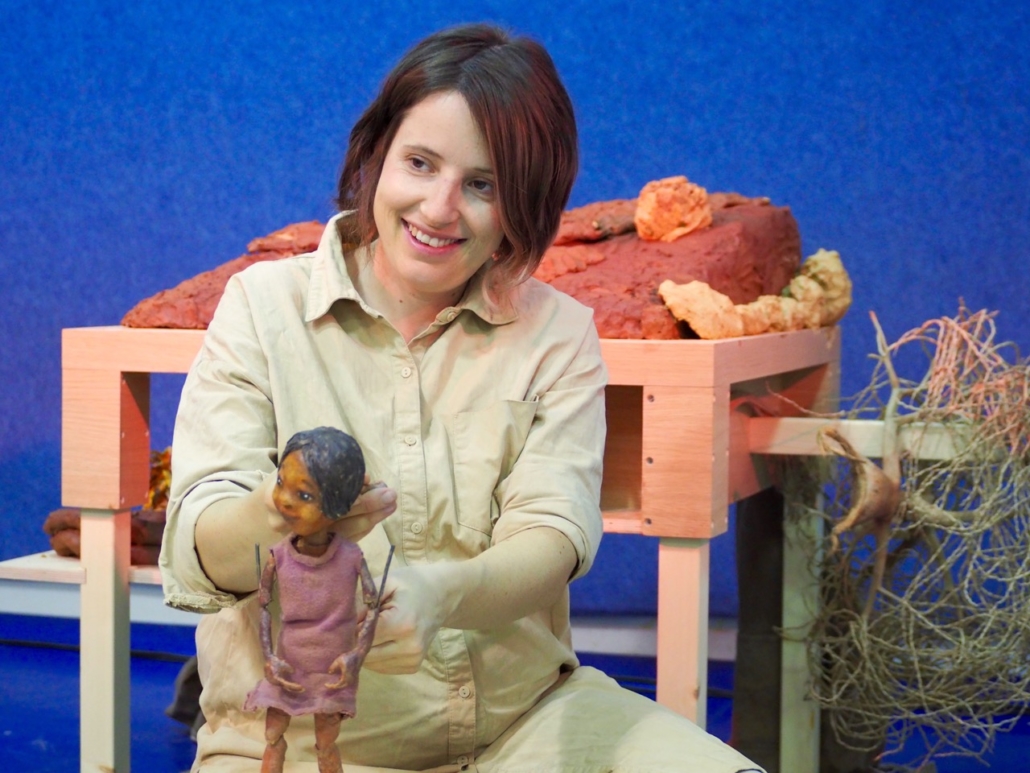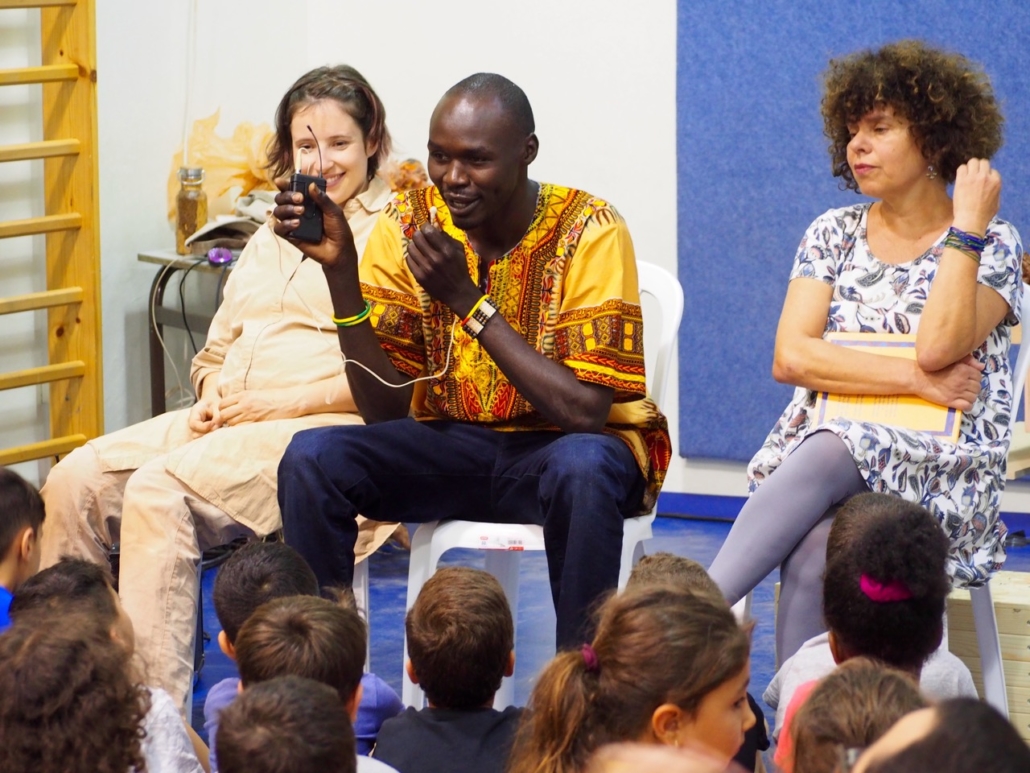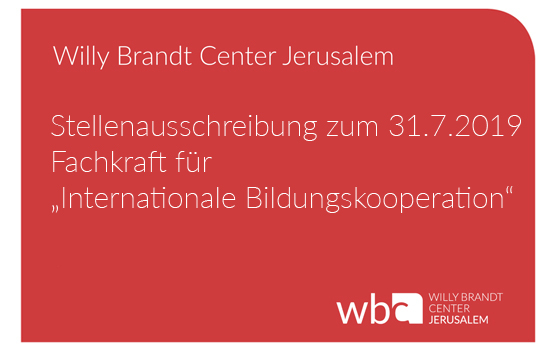In June, the Willy Brandt Center was happy to present a new puppet theatre project for schools, developed by the Israeli actors Moriya Benavot and Shaharit Yerushalmy. Their play, „Mulu and Tsegay”, is an adaption for the stage of a children’s book written by the Israeli author Tamar Verete-Zehav. It tells of courage, friendship and love, and is based on the true experiences of African refugees now living in Israel.
The audience follows the harrowing journey of two siblings, a brother and sister, who run away from their home in Eastern Africa after witnessing the burning of a neighbouring village.
Believing in the power of the arts, and specifically theatre, the artists aim to sow seeds of tolerance, open-mindedness and acceptance towards the so-called strangers living in our midst. Instead of perpetuating stereotypes infused with fear and hatred, they hope to create a sense of empathy, acceptance and compassion.
The play was performed at Beit Hakerem School in Jerusalem, where children and staff greatly enjoyed the lively performance of „Mulu and Tsegay”. The play was followed by a panel and workshops with Abdu Adam, the director Hadas Selbst, the author Tamar Verete-Zehavi, and the two actors.
We hope to have the chance to present the play to wider audiences throughout Israel in the future, and expect that “Mulu and Tsegay” will soon visit other schools as well as community centres, thus invite more kids to embark on this magical journey.

